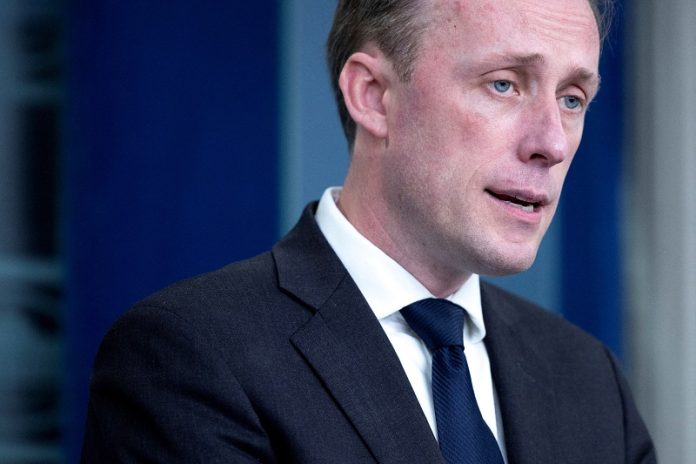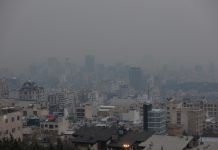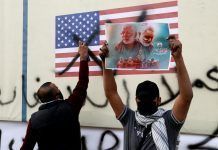
By Emily Rose
TEL AVIV, Dec 12 (Reuters) – U.S. national security adviser Jake Sullivan said on Thursday he believed a deal on a Gaza ceasefire and hostage release may be close as Israel had signalled it was ready and there were signs of movement from Hamas.
After meeting Prime Minister Benjamin Netanyahu in Jerusalem, Sullivan said: “It might not happen but I believe it can happen with political will on both sides.”
He said he planned to travel to Qatar and Egypt, Washington’s fellow moderators of the talks, to advance efforts that “would start bringing those hostages home. It would also allow for a massive surge in humanitarian assistance.”
A Western diplomat in the region said this week that a deal was taking shape but was likely to be limited in scope, involving the release of only a handful of hostages and a short pause in hostilities.
Sullivan, an adviser to President Joe Biden, said he had been engaging with President-elect Donald Trump’s choice to succeed him, Mike Waltz, “in a professional and serious way on all the issues that affect the State of Israel.”
He dismissed suggestions that Netanyahu was waiting for Trump to take office on Jan. 20 before accepting a deal.
Collapse of Assad Regime Deals Severe Blow to Islamic Republic
“No, I do not get that sense. I got the sense from the prime minister he is ready to do a deal,” he told a press conference in Tel Aviv. “My goal will be to put us in a position to be able to close this deal this month.”
“I can’t make any promises or predictions to you but I wouldn’t be here today if I thought this thing was just waiting until after Jan. 20,” Sullivan said.
Such a truce, allowing for the release of at least some of the 100 hostages remaining in Gaza, would be only the second since the war began in October 2023. Sullivan said seven of the hostages were American although four were believed to be dead.
An agreement would also enable the release of Palestinian prisoners held by Israel.
He said Hamas’ negotiating posture appeared to have changed following a ceasefire deal that halted Israel’s hostilities with Iranian-backed Hezbollah militants in Lebanon and which made clear Hamas could not expect outside support.
“And from that moment forward, we’ve had a different character to the negotiation and we believe that it puts us in a position to be able to close this negotiation.”
ANALYSIS: With Trump Back In White House, U.S.’s Iran Policy Will Change
Israel’s killing of Hamas leaders including the main architect of the Oct. 7 attacks, Yahya Sinwar, and its destruction of Hamas’ organized military structures was also relevant, he said.
Anything more than a limited truce remains unlikely so long as both sides stick to demands that have hampered numerous rounds of failed negotiations.
“Whether it does get done still depends on both sides signing on the proverbial dotted line,” Sullivan said.
‘HELL TO PAY’
Hamas, also backed by Iran, wants an end to the war before all hostages are freed, while Israel says the war will not end until the hostages return and Hamas no longer rules Gaza or constitutes a threat to Israelis.
Sullivan declined to comment on reports that Hamas may be willing to agree to Israeli troops remaining in the Netzarim corridor in central Gaza and on the Philadelphi Corridor on its southern edge for longer than they had previously accepted.
The war began after Hamas gunmen stormed into Israeli communities on Oct. 7, 2023, killing around 1,200 people and taking about 250 hostages back to the enclave, according to Israeli tallies.
Since then, Israel’s military has levelled swathes of Gaza, killing nearly 45,000 Palestinians, driving nearly all its 2.3 million people from their homes and giving rise to hunger and disease, according to Palestinian health authorities.
Trump has demanded Hamas release the hostages held in Gaza before he takes over from Biden on Jan. 20. Otherwise, Trump has said, there will be “hell to pay”.
The timing may never have been better for Netanyahu after Israel reestablished its reputation as the most powerful Middle East force with operations in Lebanon and Syria that weakened Hamas’ Iranian-backed allies and left it isolated.
Netanyahu’s once-fragile coalition has been strengthened by the addition of Foreign Minister Gideon Saar and his more centrist faction.
A Palestinian official close to the talks described what he called “a fever of negotiations” with ideas emerging on all sides, including among mediators in Egypt and Qatar and said Trump’s involvement had given the talks a boost.













